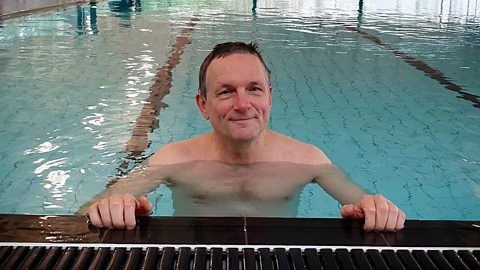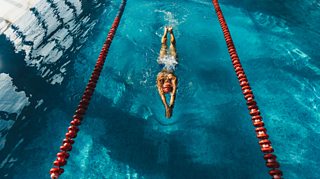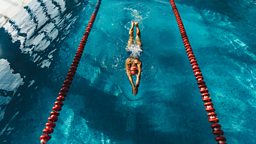Why swimming could be the best exercise you do
It’s hardly a secret that swimming is good exercise, but it’s actually great exercise and can be more beneficial for your body and the brain than land-based activity.
In Just One Thing, Dr Michael Mosley discovers why swimming is such a good all-over workout, how it stretches your blood vessels in a way that few other activities can and how it helps with memory reaction times and may even help you live longer.

Why is swimming so good for you?
Dr Michael Mosley dives in.
Swimming makes your blood vessels more elastic
“When you’re swimming vigorously, you are using lots of different muscle groups and, importantly, you are working against the weight of the water,” explains Michael.
Research suggests that even a 20-minute swim exercise can boost brain function.
One of the health benefits that testifies to the holistic power of swimming is what it does to our arteries. As blood vessels, our arteries are crucial. Heart disease, after all, is caused by artery blockage – it’s not a disease of the heart itself. Arteries not only carry blood from one part of the body to another, they also buffer the pulsations of that movement, expanding and recoiling as they do this. Playing this key role takes its toll and, over time, the arteries get stiff and can cause damage to the brain and the kidneys.
An experiment carried out by Prof Hiro Tanaka from the University of Texas, Austin showed that just three months of a swimming exercise programme was highly effective in reducing artery stiffness and reducing the stress transmitted into other organs.
Swimming can help you live longer
Perhaps not surprisingly, given the impact on arteries, swimming can extend your life. Scientists at the University of South Carolina in the US followed over 40,000 men, age 20 to 90, for an average of 13 years and discovered that swimmers had a much lower death rate than non-exercisers.
Swimmers were also 50% less likely to die from all causes than runners or walkers, with land-based exercise, for example, proving less effective in reducing artery stiffness.
Swimming is better for your brain than walking or running
Land-based exercise also has less impact on cognitive function than swimming.
“There are many research studies showing that water immersion actually increases brain blood overall,” says Prof Tanaka. Meanwhile, other research suggests that cognitive function is improved when you are in the water because you are usually in supine or prone positions. “Because of that, the flow to the brain is actually facilitated compared to upright exercises like walking or cycling,” notes the professor.
One study showed that just seven days of swim training improved the memory of rats, with tests on humans returning similar results. In terms of how long you need to swim for, research suggests that even a 20-minute swim exercise can boost brain function and enable faster reaction times.
Nordic walking in a swimming pool is a highly effective exercise!
In line with the findings comparing swimming with land-based exercises, experiments have shown that it is more effective to cycle in water when it comes to reducing artery stiffness. If you think that cycling in water sounds slightly comical, Prof Tanaka has staged an experiment where the participant goes Nordic walking (with specially designed poles) in water! This transposition of a land-based exercise into water had two benefits: the hand and arm movements impacted a greater area of the motor cortex in the brain, and the hydrostatic pressure pushing blood to the brain increased, and with it so did cognitive function. A three-month experiment of this water-based walking saw both cognitive and vascular function improve overall.

Your daily stroll would be better done in the pool
Such are the benefits of exercising in water that even vigorous walking in the shallow end of the pool could provide a fitness boost – and that’s without any Nordic walking poles! “Water provides a lot of resistance when you're exercising,” says Prof Tanaka, “so you tend to walk harder in the water compared to on land.”
Swim three times a week for half an hour each time
Prof Tanaka recommends swimming three times a week and for 20-30 minutes each time. To get the best results, he says to “keep moving in the water” during your time in the pool.
Swimming is gentle on the joints
If you need more convincing of the comprehensive benefits of swimming, one advantage of is that it is a very gentle exercise for people with injuries such as knee problems, sufferers of which will find it much harder to go running or go on long walks.
“So, there you are,” summarises Michael, “take the plunge – you could get big benefits for your blood vessels, your brain and your heart.”

















































